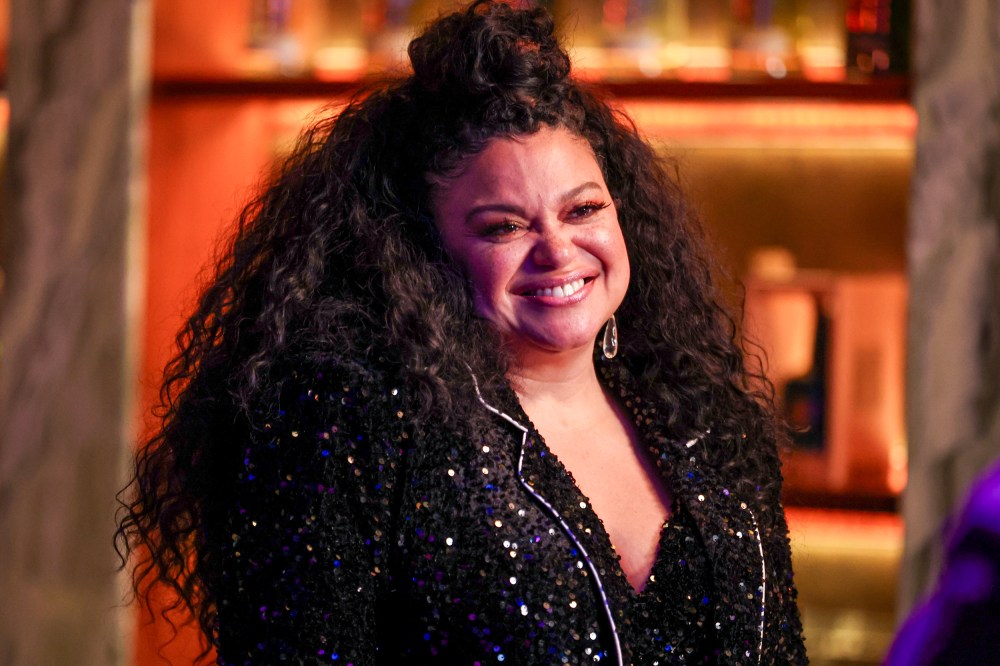In “Michelle Buteau: A Buteau-ful Mind at Radio City Music Hall,” which debuted New Year’s Eve on Netflix, Buteau, the first female comedian to headline a special at the famed New York venue, meticulously takes aim at a number of cultural and political issues. From describing a random encounter with a racist white woman at a reptile sanctuary to explaining her realization that dogs have more reproductive rights than she does, Buteau’s set embodies what makes her approach to comedy so refreshing. She’s insightful and hilarious. She makes her audiences laugh and interrogate the world and themselves — and she achieves this perfect blend without ever punching down.
She makes her audiences laugh and interrogate the world and themselves — and she achieves this perfect blend without ever punching down.
That’s a lesson other comedians should take from “A Buteau-ful Mind.” Exceptional comedy can be welcoming and bright rather than exclusionary and hate-filled. Instead of targeting vulnerable populations and then saying “it’s just comedy” to shield oneself from criticism, Buteau, leaning into the art form’s radical roots, calls out social ills and those perpetuating them. And she calls out comedian Dave Chappelle by name for his tireless crusade against trans people.
After telling a raunchy joke about her lesbian friend, whom she calls the “oracle,” Buteau paused to reflect on what she’d just done. “For the most part, we laughed,” she tells the audience. “What I’m saying is it can be done. It can be done. We can tell jokes and stories and not disparage a whole community. We can do that; we can make it funny. You just have to work at it, right? So, if you guys ever run into Dave Chappelle, can you let him know that s—?”
Chappelle’s last two Netflix specials, “The Closer” (2021) and “The Dreamer” (2023), are, in a word, transphobic. He spends significant time in each routine railing against trans people for existing and comparing the plights of Black people and LGBTQ people — as if Black LGBTQ people don’t exist. Chappelle declares himself a member of “Team TERF,” a phrase used to describe virulent anti-trans activists, including J.K. Rowling, who are committed to eradicating the “concept” of transness.

Though his remarks are incendiary, Chappelle has claimed he “has never had a problem with transgender people.” He’s also said the trans people he knows have “been nothing but loving and supportive” about his anti-trans jokes. We have no way of verifying that and no way of knowing how many trans people he even knows. We do know, though, that the anger at Chappelle that trans people have publicly expressed is real and that it’s had some effects.
Netflix employees staged a walkout after “The Closer” was released and publicly excoriated Chappelle and Netflix executives for green-lighting the special without including a disclaimer at the beginning. (Full transparency, I was an employee at Netflix then and I participated in the walkout.) First Avenue, the famous venue in Minneapolis, also canceled one of his shows after trans people protested.
According to the Human Rights Campaign, at least 30 trans and gender-nonconforming people were killed in the United States in 2024.
Even after the controversy over “The Closer,” Netflix executives affirmed their support for Chappelle. “While some employees disagree, we have a strong belief that content on screen doesn’t directly translate to real-world harm,” co-CEO Ted Sarandos said in an email obtained by Variety. But many signs point to that being untrue as transphobia continues to cost trans people their lives.
According to the Human Rights Campaign, at least 30 trans and gender-nonconforming people were killed in the United States in 2024 alone. Comedy targeting trans people is especially problematic in this context. Still, other high-profile comedians have mostly rallied around Chappelle and defended his habit of scapegoating people who are already disproportionately more likely to die from suicide.
Given these stakes — and the fact that Buteau and Chappelle both have overall deals with Netflix — Buteau’s decision to unapologetically call out Chappelle is even more heartening. After calling Chappelle the GOAT, but defining it as “going off about trans people,” Buteau made the stakes abundantly clear: “Dave, it’s not funny. It’s dangerous,” she said. “I can’t believe somebody would make millions and millions of dollars for making people feel unsafe.”

Outside of Wanda Sykes and Jerrod Carmichael, who are both Black, queer comedians, many of Chappelle’s contemporaries have argued that he has an unfettered right to free speech and shared stages with him. In 2022, John Mulaney had Chappelle open for him during a show in Ohio, and as to be expected, Chappelle told both homophobic and transphobic jokes. After Chappelle’s set, Mulaney came onstage and embraced him. In defense of Chappelle, Kevin Hart, who lost his gig to host the 2019 Academy Awards after homophobic tweets resurfaced, told The Independent that “you have the option of just not watching someone you don’t find funny or entertaining.”











